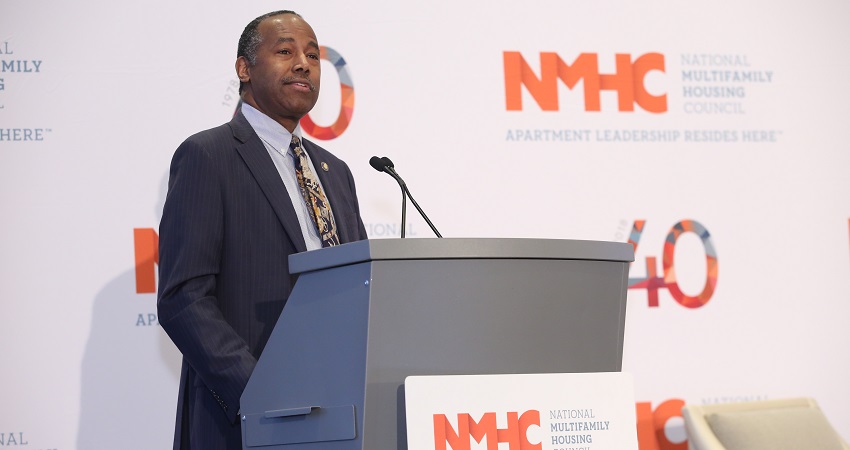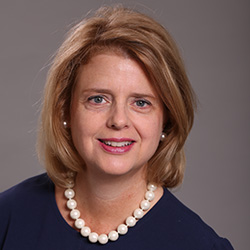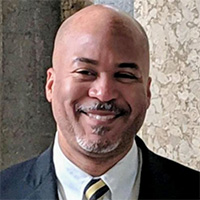
HUD Secretary Ben Carson closing out NMHC’s 2018 Fall Meeting, outlining his plan to implement key reforms to address critical housing needs.
HUD Secretary Ben Carson closed out NMHC’s 2018 Fall Meeting by outlining his plan to implement key reforms to address critical housing needs. A strategic opportunity to engage the leaders of the multifamily industry in the policy discussion, Secretary Carson’s address also gained media attention.
“We are facing a situation of overwhelming demand,” he said in his opening remarks. “Only one in four applicants eligible for assistance receives it.”
To begin to fix this problem, Carson said he was proposing policies to encourage not only more housing development but also participation in the Housing Choice Voucher, or Section 8, program.
Removing onerous regulations and providing local housing authorities and property owners and managers with more flexibility to address discrete needs are top agenda items. “The housing needs of a rural family in Alaska are probably going to be different than the needs of an urban family in Chicago,” he explained.
In addition, Carson said he was supportive of programs that encourage private development of multifamily housing.
“We want to encourage through grant making—or even not grant making—investment,” Carson said. “We need to tackle these regulatory barriers that are keeping us from developing affordable housing.”
Similarly, Carson said that he was kicking off a so-called listening tour to get a better understanding of why more apartment owners and managers choose to not participate in the housing voucher program. Former NMHC Chairman Daryl Carter of Avanath Capital will participate in the first session, being held in Washington, D.C.
On the demand side of the equation, Carson said that his aim was to implement new policies that “aim to move families from a life of dependency to independency.”
“The focus has been on programs and buildings, but we need to focus on the people,” he said. “The programs and buildings are really going to help improve the people.”
A key problem has been the lack of incentive for recipients to move away from subsidies. Carson said he was proposing some rent reforms to help address that, including moving to a three-year recertification process that would give program participants some financial stability while reducing paperwork and associated costs.
Quoting George Washington Carver and Helen Keller, Carson spoke about his initiative that would develop,
what he called, Envision Centers to help support people in their paths to self-sufficiency. These centers would provide a one-stop shop to program participants, essentially bringing together the resources of 22 federal agencies along with state, local, private and non-profit resources under one roof to provide wrap-around services.
“If the budget isn’t going to grow and the demand isn’t going to stop growing, we’re going to lose grip on whatever the balance we do have on supply and demand right now [without changes],” Carson explained.





